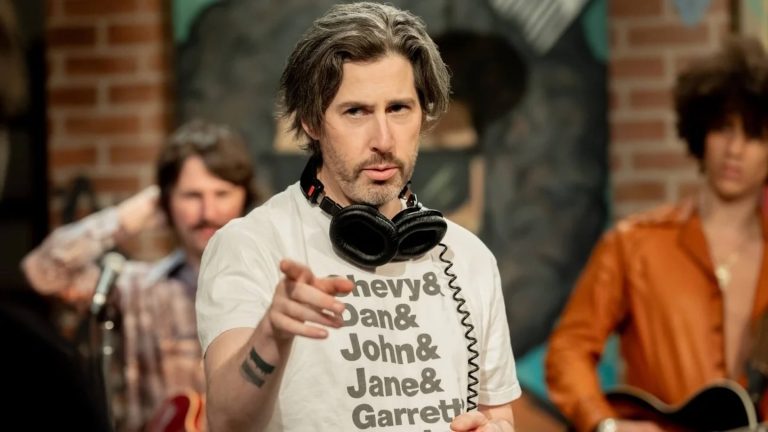
How do you know if you're becoming a better screenwriter?
Complacency kills the creativity of screenwriters each day, month, and year. Being a creature of habit is easy. Falling into the same patterns is easy. And it's even easier to drift listlessly waiting for greatness and success to come to you.
You always have to be searching for ways to evolve as a screenwriter. When you first start out, there's a training period that you go through.
You learn the format.
Read ScreenCraft's Does Correct Screenplay Format REALLY Matter?
You learn how to choose your concepts wisely.
Read ScreenCraft's 3 Most Common Conceptual Mistakes Screenwriters Make!
You learn about structure.
Read ScreenCraft's 10 Screenplay Structures That Screenwriters Can Use!
You learn about dialogue.
Read ScreenCraft's The Single Secret of Writing Great Dialogue!
And so much more.
But at some point — if you avoid that curse of complacency — you hopefully evolve. At some point, you take that next turn in your screenwriting journey. A corner that elevates you from novice screenwriter to something higher tier.
To help you recognize the signs that you've made that turn to becoming a truly great screenwriter — or to help you know how to accomplish that feat sooner than later — here are ten indications to look for and strive for.
1. You're Not Waiting to Be Inspired
"Amateurs sit and wait for inspiration, the rest of us just get up and go to work."
This is a wise quote taken from Stephen King's On Writing: A Memoir of the Craft.
If you don't have any problems finding concepts to develop and write but find yourself struggling to find inspiration to actually go and write on a consistent basis, there's some more evolving that needs to be done.
Read ScreenCraft's 7 Reasons Why “Writer’s Block” is BS!
2. Your Page Counts Are Low
Now and then, a script calls for a little more. But only in the rarest occasions are they pushing those industry guidelines and expectation limits of 90-115 pages.
If your screenplays are continually pushing the 125 to 130-page mark, chances are you aren't making the necessary edits, or you're refusing to do what most great screenwriters can do — kill your darlings. Or you haven't embraced the Less Is More Mantra that all screenwriters writing on spec need to live and write by.
Yes, we know the stories of this iconic screenwriter writing a 160-page draft or that iconic movie having a near four-hour running time. But great screenwriters realize their place and the limits they have to abide by whenever they can. If you're not Aaron Sorkin and if you haven't been hired by a studio to write an epic movie like Titanic, you need to understand that page counts do matter.
High page counts are a natural red flag. Again, some scripts call for them, yes. But if most of your scripts are pushing past that desired 90-115 page mark, you may need to figure out a way to edit better and describe your scenes and actions with less.
3. You Can Kill Your Darlings
Stephen King wrote, "When your story is ready for rewrite, cut it to the bone. Get rid of every ounce of excess fat. This is going to hurt; revising a story down to the bare essentials is always a little like murdering children, but it must be done."
When you can kill your darlings — those scenes, moments, and lines of dialogue that you love but just don't fit into the story — you've become a great screenwriter. It's one of the most challenging things to learn and discipline yourself to do.
And that's what it is all about — discipline.
To better the pacing of your script, you're going to need to learn how to pick and choose what stays in and what doesn't.
We've all been there. We have that great scene, sequence, moment, monologue, or character that we love and had a blast writing. But as we're rewriting our script to better the pace and tighten the draft as a whole, they just keep sticking out and need to go.
When you're able to do that with little to no hesitation, you've become a better screenwriter.
Read ScreenCraft's How to Cut the Fat from Your Screenplays!
4. You Make Every Word Earn Its Place in Your Script
You can spot unnecessary words and phrases quickly. You can describe the visual in one sentence versus three, and you can often do the same with a fragment versus a sentence. You can cut down lines of dialogue to their emotional core, and you can often do the same for scenes as a whole.
Every word matters. As a screenwriter, you need to master the art of cutting every line down to its core meaning and purpose. And when you do that, your page counts go down as well.
5. You Don't Use Dialogue as a Crutch
If script readers had to list the biggest crutch that screenwriters rely on to tell their stories, most would quickly point to dialogue.
Dialogue is there to support the story, not tell it. It's there to enhance characterization, not define it.
If you find yourself able to tell stories and reveal characterization with little to no dialogue — instead through action, reaction, visuals, reveals, plants, and payoffs — you're on your way to becoming a great screenwriter, if you aren't already.
6. You Can Write a Script in Three Months or Less — and Write It Well
And we're talking about getting to the coveted final draft in that short amount of time.
The days of taking four, five, six months, or beyond to finish that script need to be well behind you. Taking that long is a product of a lack of discipline, focus, and development.
Professional screenwriters are often under contract to deliver the first draft of an assignment within ten weeks. If they aren't replaced after turning in that draft (which needs to read more like a final draft), they'll generally have a couple of weeks to finish a rewrite and polish.
Great screenwriters prepare themselves for when they are hopefully called up to the big leagues to tackle an assignment or develop, write, and rewrite a script of their own that has been optioned or acquired. To prepare for that, you need to set strict deadlines and stick to them.
And the great screenwriters have no problem finishing a script within three months or less because they know this and have trained and disciplined themselves to be able to do so.
7. You Don't Need to Write Introductions
You can take the script reader or audience straight into the action, drama, and suspense with little to no introduction necessary.
As a screenwriter, if you can avoid having to "set the scene" of your story and characters and reveal all of those details briefly through action, reaction, visuals, subtle dialogue, plants, and payoffs, your scripts will be tight, well-paced, and engaging.
Yes, there are plenty of stories that work well with introductions, set-ups, and showing the character's world before the call to adventure and conflict come into play. However, sometimes readers and audiences just love to be thrown into the mix as they discover those details along the way.
8. You Collaborate Well with Others
This includes taking notes and feedback from third parties. Film is a collaborative medium. It only begins with the screenwriter. Representation, development executives, producers, directors, talent, and the crew are all part of the cinematic equation.
If you can't work well with others or find yourself fighting constant battles with anyone that has anything to say about your script that is contrary to what you believe, you have some more evolving to do as a screenwriter.
Even when you ask someone to offer feedback on your script, you always have to remember that you're entering a collaboration of sorts when you do. If they have concerns and questions, that's information you need to consider (at the very least). The collaboration aspect starts when you ask them to elaborate — to find more meaning behind their feedback.
And yes, if you can develop and write a script with a manager, agent, development executive, producer, director, actor, or writing partner, that's a sign of a great screenwriter that is ready, able, and willing to collaborate.
9. You Know When to Break the "Rules"
Hollywood has plenty of rules, guidelines, and expectations — the latter two of which are often mistaken as rules by pundits, gurus, and novice screenwriters.
Read ScreenCraft's The Differences Between Screenwriting Rules, Guidelines, and Expectations!
A great screenwriter knows when to (and when not to) take risks. Sometimes it's okay to go for a longer page count. Sometimes it's okay to write long scene descriptions. Sometimes it's okay to inject a little exposition within the dialogue. Sometimes it's okay to push the limits of format.
Read ScreenCraft's Seven Screenwriting Lessons A QUIET PLACE Can Teach You!
But the secret is to know when you should and shouldn't break any rules or go against those guidelines and expectations. If you're doing any of that just for the heck of it or just because it's making things easier for you, you're missing the point.
Those decisions have to be made to serve the story, serve the characters, and serve the script.
10. You Can Be Objective Towards Your Own Work
It's very easy to fall in love with your own work. And that love often blinds writers to the many faults within their screenplays.
Great screenwriters can read through their scripts and spot not only the mistakes, but also the scenes, sequences, moments, characters, and dialogue that just aren't working. They can see when they are overwriting, underwriting, or just writing soulless scenes or dialogue that are there for the sole purpose of exposition or self-satisfaction.
Novice (or arrogant) screenwriters think their work is brilliant. Great screenwriters can always spot the necessary room for improvement.
If you collectively aren't waiting for inspiration, have low page counts a majority of the time, can kill your darlings with ease, always make every word in your script count, don't use dialogue as a crutch, discipline yourself with industry-like deadlines, don't rely on introductions, can collaborate well with others and take notes with ease, know when and when not to break the rules, and have the ability to be objective about your own work, you're likely a great screenwriter.
But there's always more room for improvement, right?
Ken Miyamoto has worked in the film industry for nearly two decades, most notably as a studio liaison for Sony Studios and then as a script reader and story analyst for Sony Pictures.
He has many studio meetings under his belt as a produced screenwriter, meeting with the likes of Sony, Dreamworks, Universal, Disney, Warner Brothers, as well as many production and management companies. He has had a previous development deal with Lionsgate, as well as multiple writing assignments, including the produced miniseries Blackout, starring Anne Heche, Sean Patrick Flanery, Billy Zane, James Brolin, Haylie Duff, Brian Bloom, Eric La Salle, and Bruce Boxleitner. Follow Ken on Twitter @KenMovies
For all the latest ScreenCraft news and updates, follow us on Twitter, Facebook, and Instagram.
Tags
Get Our Screenwriting Newsletter!
Get weekly writing inspiration delivered to your inbox - including industry news, popular articles, and more!



























